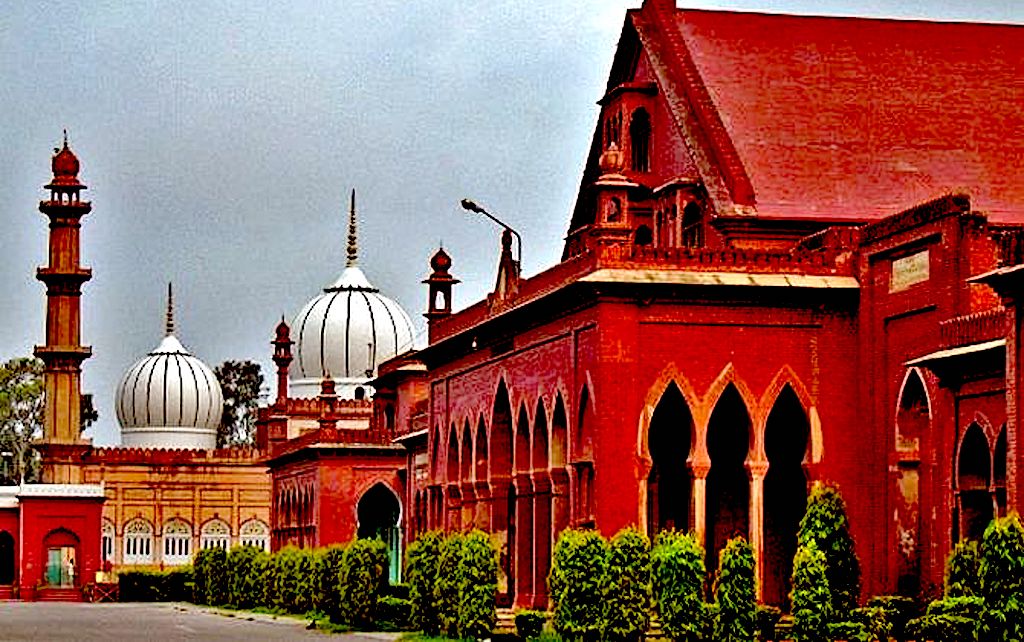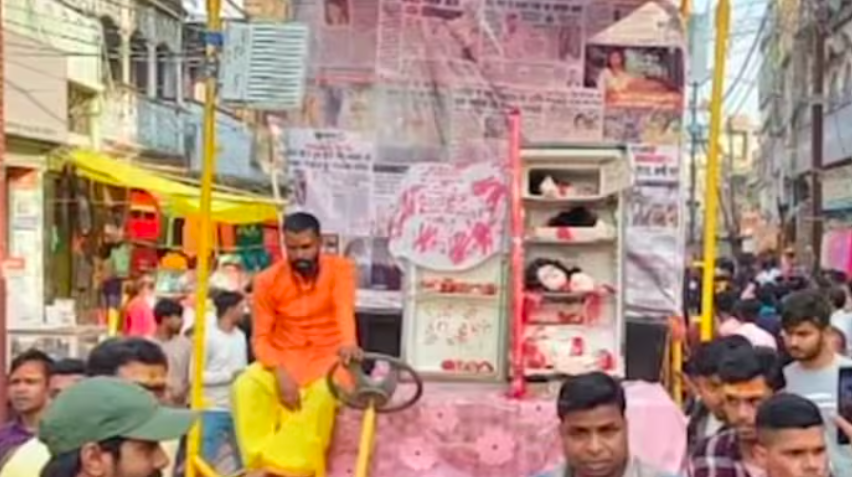By Dr Mohammad Sajjad
Since the year 1900, the relationship between the students and the [European] staff of the MAO College (now, AMU, Aligarh) was in deep trouble. One of the issues was food.
Amid these, in 1903, Maulana Mohd. Ali Jauhar came back from Oxford, wanted a teaching position in Aligarh, but he was denied, on extraneous reasons. He opposed the European elements in the college, wrote essays in newspapers, was supported by a faction of the Old Boys’ Association (OBA), and Viqarul Mulk, Muhsinul Mulk etc liked/ supported him. In July 1903, Hasrat Mohani had already launched his Urdu-e-Mualla, articulating anti-colonial nationalist feelings.
The students had formed a ‘secret study circle’ where they deliberated upon finding the ways of expelling the British out of India.
In 1904, the conflict among the trio of the Students-Trustees- European Staff continued; Morison warned Mohsinul Mulk.
Morison, the Principal, had become a target in the students’ sharp criticism. There were reasoned debates in the Students’ Union Club. Morison’s proposal of Mr Carna to be accepted as his successor was particularly disliked by the students. Still, the might of the [European] administrator prevailed, and Mr Carna became the Principal in March 1905.
In October 1905, Archbold came as Principal, and he was harsh against the students, in the name of disciplining them.
The students attended the 1905 session of the Indian National Congress at Banaras, where the historic resolution of compulsory free primary education was passed. Bijnori came to be called as “Agitator”, and Syed Mahmud (1889-1971, who later became Union Minister of State for External Affairs in Nehru’s cabinet) of Bihar as “Qaum”. The rebellious revolutionary students had started displaying the portraits of Gokhale, German Kaiser, and Turkish Sultan etc in their hostel rooms. The British kept an anxious watch on all these developments.
In January 1906, one student, Syed Mustafa Husain was expelled. He had submitted memoranda against the Provost, G. Brown, on the problems of Boarding Management. Even then, Mustafa was invited by Mohsinul Mulk in the All India Muslim Educational Conference (AIMEC), October 1906; it was resented rashly by Archbold. Because he advised the Aligarh people to stay aloof from political agitation, whereas, in May 1906 the Aligarh Student union had, in fact, passed a resolution advocating Hindu-Muslim political cooperation to expel the British from India. Gradually British racial contempt against Asians started manifesting in Aligarh. Md Ali Jauhar started writing sharply against it. It was alleged that Morison was using Aligarh as a political tool of the colonial government. He had taken out Rs 1000 of the College fund for the government’s diplomatic deputation in Iran. It was hugely protested, but he threatened to get them punished by the Viceroy. Repression against students increased manifold adding fuel to the fire of student rebellion.
In February 1907, in the annual Exhibition of Aligarh, a student, Ghulam Husain had a clash with a constable; he was expelled for three months on the insistence of the S.P. As Ghulam was counted as a sharp and sincere student and was an award-winning orator, therefore, this administrative action made the students further angry. There was huge student protest, and Union debates against the administrative repression.
On 20 February 1907, six students including Syed Mahmud (1889-1971) was expelled. The student furore led to sine die closure of the college, to be re-opened only on 2 April 1907. An enquiry was instituted; unsurprisingly the report toed an official line and indicted the students for being Pro-Congress, which was told to be a disturbing trend in the college. Mohsinul Mulk was supposed to be sympathizing with the students, and he had to resign in disgust. This student agitation was spearheaded by A.R. Bijnori, his media campaign and representation to the Lt Governor, etc put pressure on the government as on 30 March 1907, an Old Boys’ Convention was also held. Consequently, Hewitt, the Patron, intervened to institute a fresh enquiry. By this time, the Principal had almost reconciled.
Earlier, on 5 February 1907, Gokhale was given an overcrowded warm reception at Aligarh, where he spoke on education.
In June 1908, Hasrat Mohani was imprisoned on flimsy grounds of having published an essay on Egyptian system of education. In 1908 session of the Muslim League at Aligarh, these students subjected the Muslim League to sharpest criticism for being pro-British.
Thus, the students were brimming with self-confidence. Remaining undaunted with the official repression, they had resolved to live with heads held high, and to keep their minds without fear.
(Mohammad Sajjad is Professor, Centre of Advanced Study in History, Aligarh Muslim University.)









